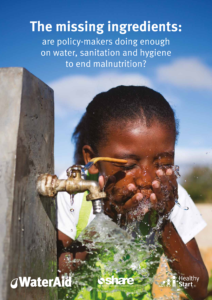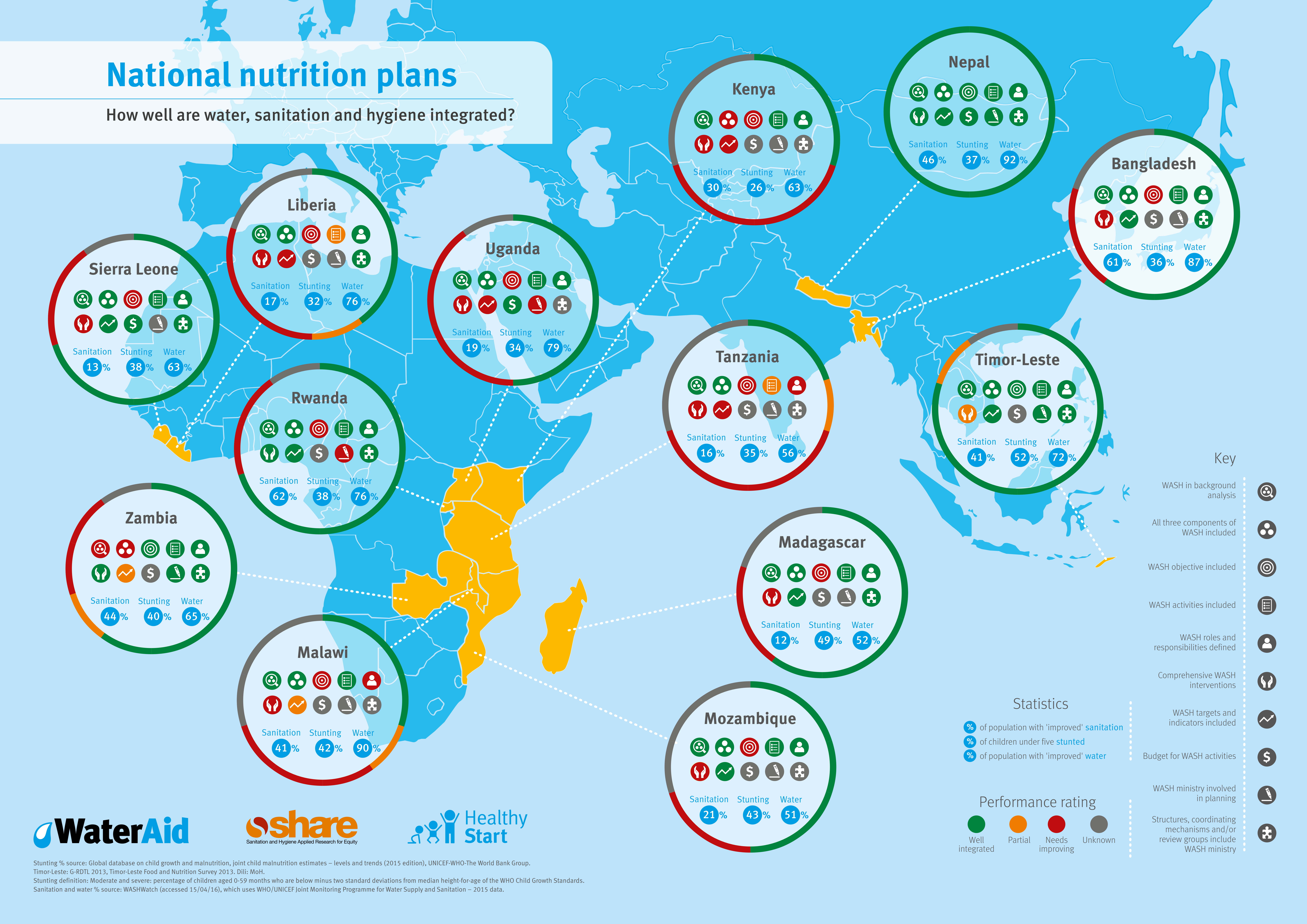New report analyses comprehensive nutrition and WASH approaches to end malnutrition
On 4 August 2016, WaterAid and SHARE launched the report ‘The missing ingredients’ to highlight the degree to which national nutrition and water, sanitation and hygiene (WASH) plans and policies are coordinated and integrated to end malnutrition. Evidence shows that scaling up interventions that tackle the immediate causes…
 On 4 August 2016, WaterAid and SHARE launched the report ‘The missing ingredients’ to highlight the degree to which national nutrition and water, sanitation and hygiene (WASH) plans and policies are coordinated and integrated to end malnutrition.
On 4 August 2016, WaterAid and SHARE launched the report ‘The missing ingredients’ to highlight the degree to which national nutrition and water, sanitation and hygiene (WASH) plans and policies are coordinated and integrated to end malnutrition.
Evidence shows that scaling up interventions that tackle the immediate causes of malnutrition is insufficient to overcome the challenge. A more comprehensive ‘recipe’ requiring a mix of ‘ingredients’ from multiple sectors is critical to address both the immediate and underlying causes of malnutrition. The report analyses the national nutrition policies and plans of 13 SUN Countries, as well as their WASH plans, to identify the extent to which coordination and integration are taking place.
In the report, the authors draw out lessons regarding:
- Which countries are integrating most effectively at the policy level (such as Nepal, Timor-Leste)
- How this needs to be followed through in financing, implementation and evaluation
- What those further behind can learn from their example
The report calls on all partners to play their part – Governments, UN agencies, donors, technical agencies and international NGOs and academics – to ensure a comprehensive approach to ending malnutrition.
- Download The missing ingredients report English | Portuguese
-
Download a table of country-by-country findings
- Read the blog “The missing ingredients: are policy makers doing enough on water, sanitation and hygiene to end malnutrition?”
WaterAid
WaterAid was established in 1981 as a charitable trust and has become one of the most respected organisations dealing solely with water, sanitation and hygiene issues. WaterAid supports local partners in the countries where they work and invest in local organisations to build both their skills and capacity, making the projects sustainable over the longer-term. WaterAid’s teams in Australia, Canada, Sweden, the UK and the USA help coordinate and fund operations across Africa, Asia, Central America and the Pacific. They also have a small team in Japan.
SHARE – Sanitation and Hygiene Applied Research for Equity
SHARE was established in 2010 with funding from the UK Department for International Development. It is a Consortium that seeks to contribute to achieving universal access to effective, sustainable and equitable sanitation and hygiene by generating, synthesising and translating evidence to improve policy and practice worldwide. SHARE is led by the London School of Hygiene & Tropical Medicine and comprises of nine partner organisations. They also seek to maximise country ownership of SHARE’s work and the sustainability of SHARE investments with five partners based in Africa and Asia.
